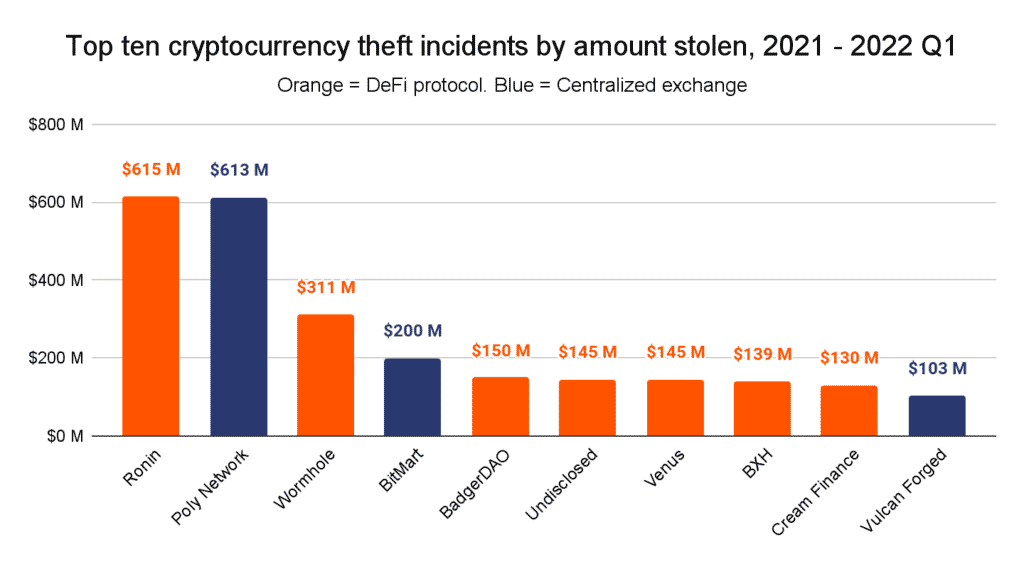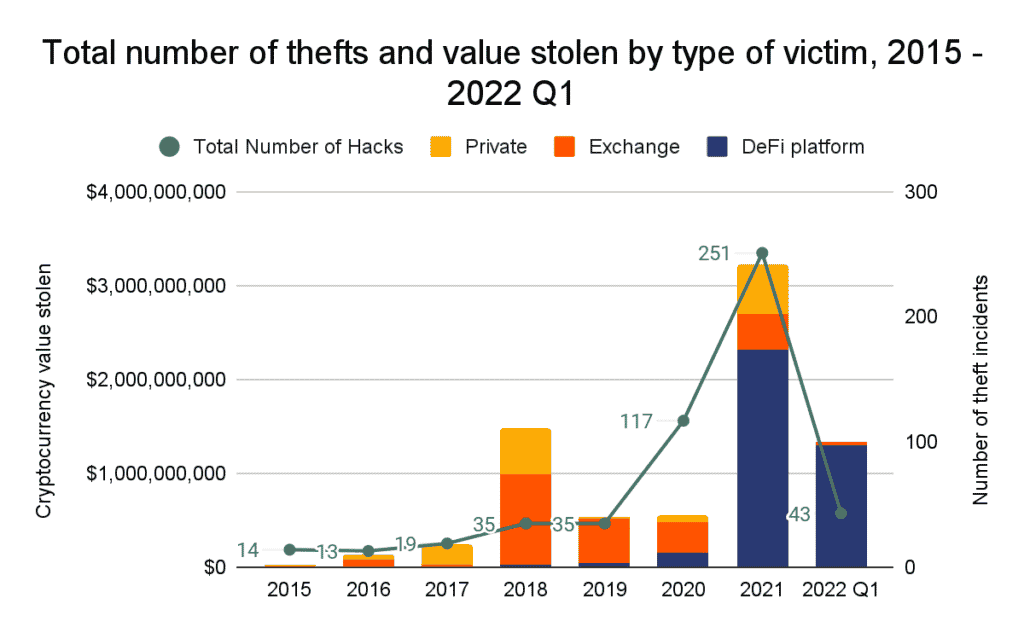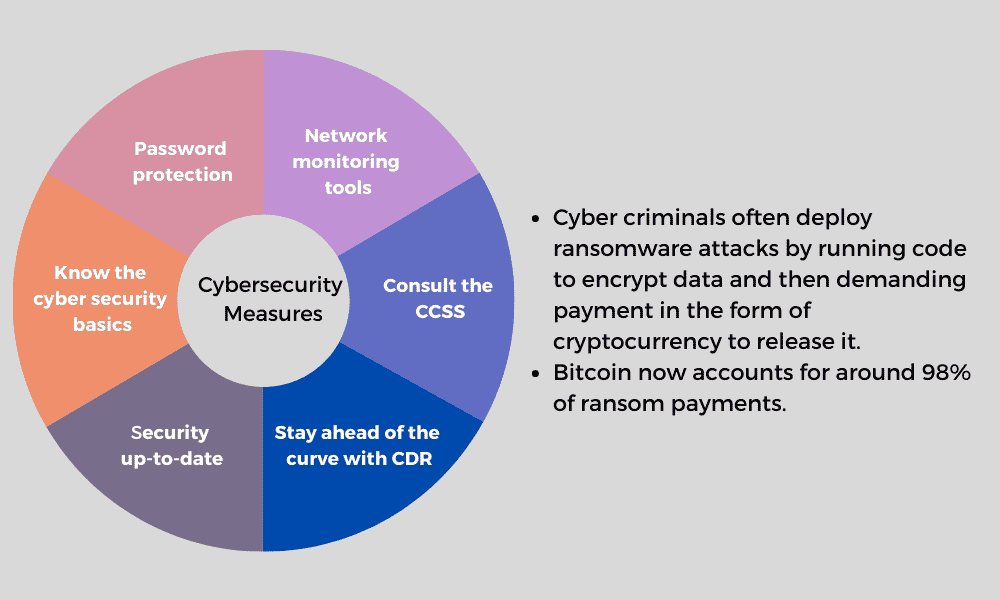
How do Cryptocurrencies Affect Cybersecurity?
The digitization of our world is continuing at an accelerating pace. More and more of our lives and our economy are moving online. Even our money is increasingly digital. We use credit cards and bank transfers to make most of our purchases and electronic wallets to store our money. With the rise of cryptocurrencies, we now have a new way to store and transfer entirely digital value. Cryptocurrencies are decentralized, meaning they are not subject to the control of any government or financial institution. They are also incredibly secure, thanks to the use of blockchain technology.
But what does this all mean for cybersecurity? Do cryptocurrencies also present a new cybersecurity risk? We must first understand how cryptocurrencies work and what makes them secure in knowing the answer. Read this blog post and know the threats associated with cryptocurrencies.
What is Cryptocurrency?
Cryptocurrencies are digital or virtual tokens that use cryptography to secure their transactions and control the creation of new units. Cryptocurrencies are decentralized, meaning they are not subject to the control of any government or financial institution.
The most famous cryptocurrency is Bitcoin, but there are many others, such as Ethereum, Litecoin, and Monero. Cryptocurrencies are often bought and sold on decentralized exchanges and can also be used to purchase goods and services.
How Do Cryptocurrencies Work?
Cryptocurrencies use blockchain technology to create a secure, decentralized ledger of all transactions. Blockchain is a secure distributed database from hacking because it uses cryptography to encrypt transactions and prevent double-spending.
Whenever a transaction is made, it is recorded on the blockchain and verified by a network of computers. This makes it impossible to spend the same cryptocurrency twice fraudulently. It also makes cryptocurrencies much more secure than traditional fiat currencies, which are vulnerable to counterfeiters.
What Are the Cryptocurrency Scams That Affect Cybersecurity?
Since cryptocurrencies are digital and often stored in online wallets, they are vulnerable to hacking. In fact, there have been several high-profile hacks of cryptocurrency exchanges in recent years, resulting in the loss of millions of dollars worth of cryptocurrency.

In early May 2021, a ransomware attack struck the Colonial Pipeline. This attack resulted in the shutdown of the pipeline, which provides much of the fuel for the East Coast of the United States. The hackers demanded a ransom of $5 million in Bitcoin, and they got it.
This is just one example of how criminals use cryptocurrency to extort money from victims. Below, we’ve listed the major cryptocurrency scams affecting the cybersecurity of businesses and the security of companies and individuals.
- Investment Scams: These scams lure victims with the promise of high returns on their investment in a new cryptocurrency. The reality is that these scammers will take your money and disappear.
- Phishing Scams: Phishing is a type of cyber-attack that involves criminals sending fake emails or messages that look like they come from a legitimate source, such as a cryptocurrency exchange. These messages will often contain links that lead to counterfeit websites that steal your login credentials or infect your computer with malware.
- Ponzi Schemes: A Ponzi scheme is a type of investment scam that promises high returns but instead uses the money from new investors to pay old investors. These schemes eventually collapse, leaving the new investors with nothing.
- Initial Coin Offering (ICO) Fraud: An ICO is a crowdfunding campaign used to raise funds for new cryptocurrencies. However, many ICOs are scams, and the people behind them will take your money and disappear.
- Malware: Cryptocurrency mining requires a lot of computing power, which criminals can harness to mine cryptocurrency for themselves. They do this by infecting your computer with malware that allows them to use your resources to mine cryptocurrency. This can slow down your computer and use up a lot of your electricity.
How Does Cryptocurrency Affect the Security of Your Business?
Cryptocurrencies are often used in ransomware attacks, as we saw with the Colonial Pipeline attack. In these attacks, hackers will encrypt your data and demand a ransom in cryptocurrency to decrypt it. These attacks can be very costly for businesses, as they have to pay the ransom and deal with the downtime caused by the attack. In some cases, companies may not be able to recover their data even after paying the ransom.
Cryptocurrency can also buy and sell illegal goods and services on the dark web. This includes things like drugs, weapons, and child pornography. By using cryptocurrency, criminals can buy and sell these items anonymously without fear of being caught. This makes it very difficult for law enforcement to track down these criminals.

Cryptocurrency can also be used in money laundering schemes. In these schemes, criminals will convert their illicit funds into cryptocurrency and then use it to buy legitimate goods and services, making it difficult to trace the money and track down the criminals.
Overall, cryptocurrency can have a significant impact on the security of your business. If you accept cryptocurrency as payment, you could be targeted by criminals. Additionally, if you use cryptocurrency to buy or sell goods and services, you could unwittingly participate in criminal activity.
For these reasons, it’s essential to exercise caution when dealing with cryptocurrency. Make sure you only deal with reputable exchanges and businesses, and be sure to keep your computer security up-to-date to protect yourself from mining malware and other attacks.
What are the measures businesses can take to protect themselves from cryptocurrency scams?

Businesses can take a few measures to protect themselves from cryptocurrency scams.
- Educate yourself and your employees about cryptocurrency and how it works. It will help you spot red flags that indicate a scam.
- Only deal with reputable exchanges and businesses. Do your research to make sure you’re dealing with a legitimate company.
- Keep your computer security up-to-date to protect yourself from mining malware and other attacks.
- Be careful when accepting cryptocurrency as payment. Make sure you understand the risks involved before you agree to receive it.
- If you use cryptocurrency to buy or sell goods and services, only deal with reputable companies. Be aware of the risks involved in doing this.
You can help protect your business from cryptocurrency scams by taking these measures.
What is the future of cryptocurrency?
The future of cryptocurrency is uncertain, and it remains to be seen whether it will become widely adopted or fade into obscurity.
Cryptocurrency has the potential to revolutionize the way we conduct business and interact with each other. However, it also has the potential to be used for criminal activity.
Only time will tell what the future of cryptocurrency holds. In the meantime, it’s essential to exercise caution when dealing with it.
Conclusion
Cryptocurrency can have a significant impact on the security of your business. If you accept cryptocurrency as payment, you could be targeted by criminals. Additionally, if you use cryptocurrency to buy or sell goods and services, you could unwittingly participate in criminal activity.
Businesses can take a few measures to protect themselves from cryptocurrency scams. These include educating yourself and your employees about cryptocurrency, only dealing with reputable firms and exchanges, and keeping your computer security up-to-date.
A Decade of Insight into Vulnerability Analysis – Get eBook for Free








